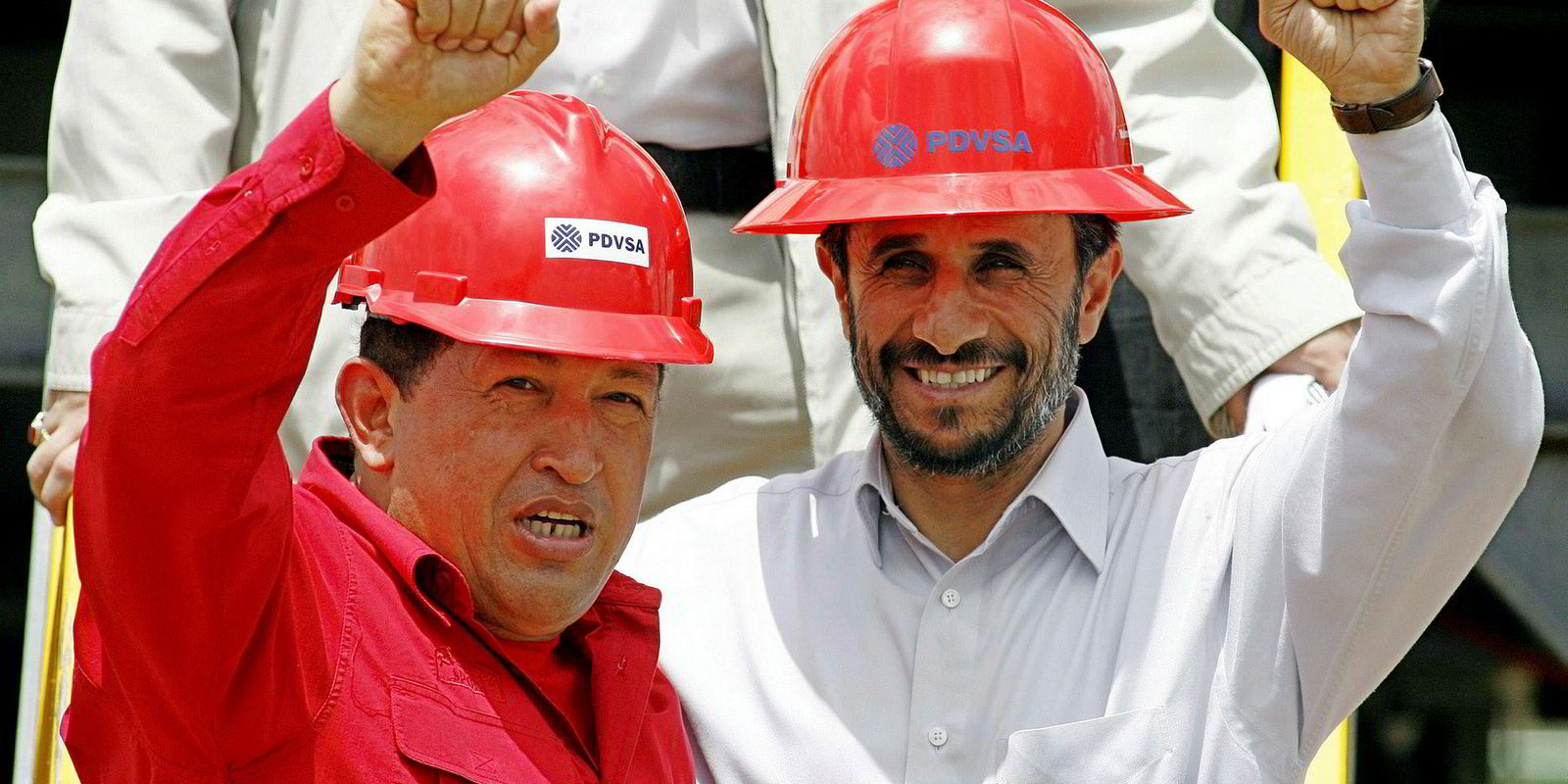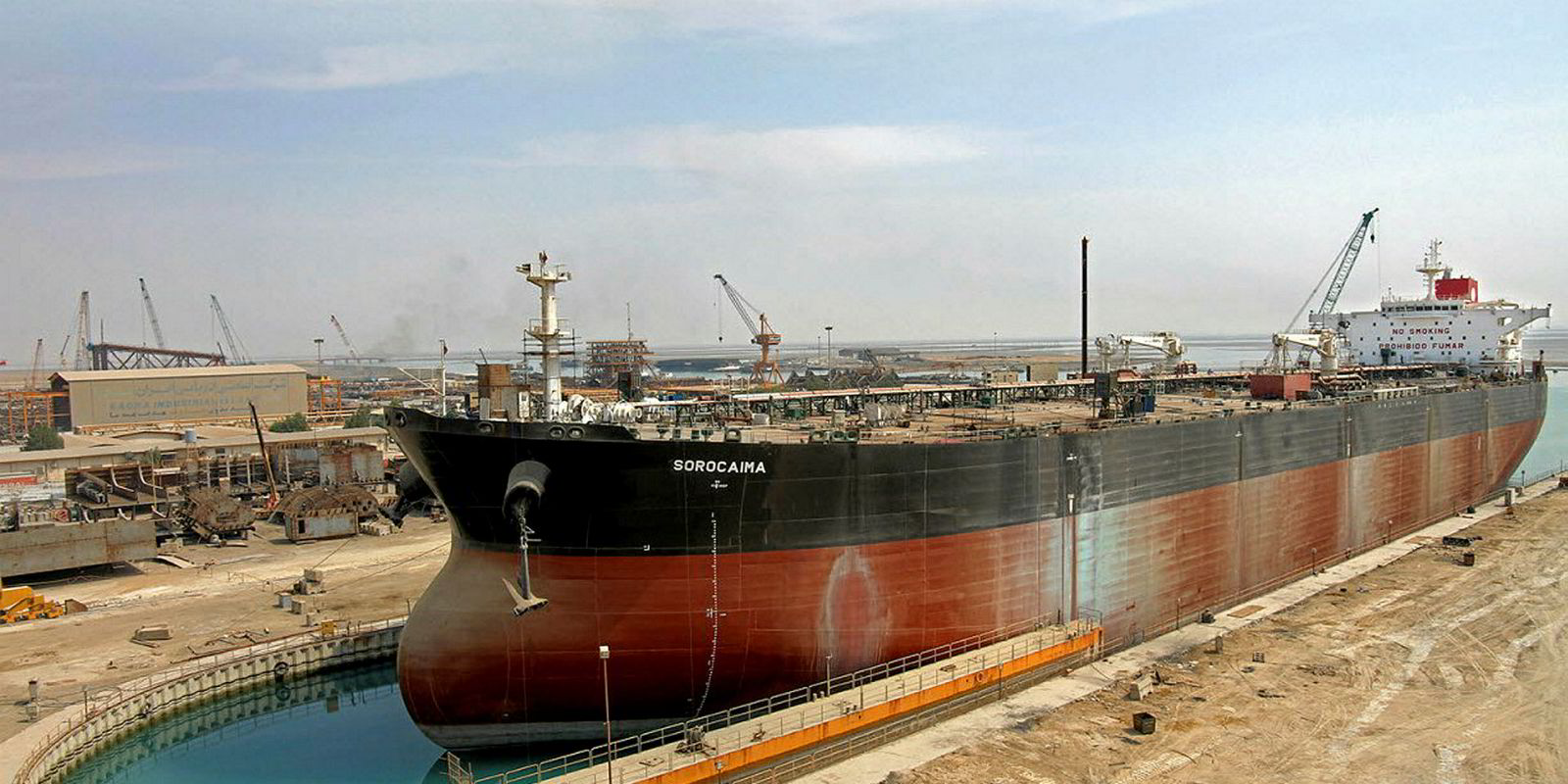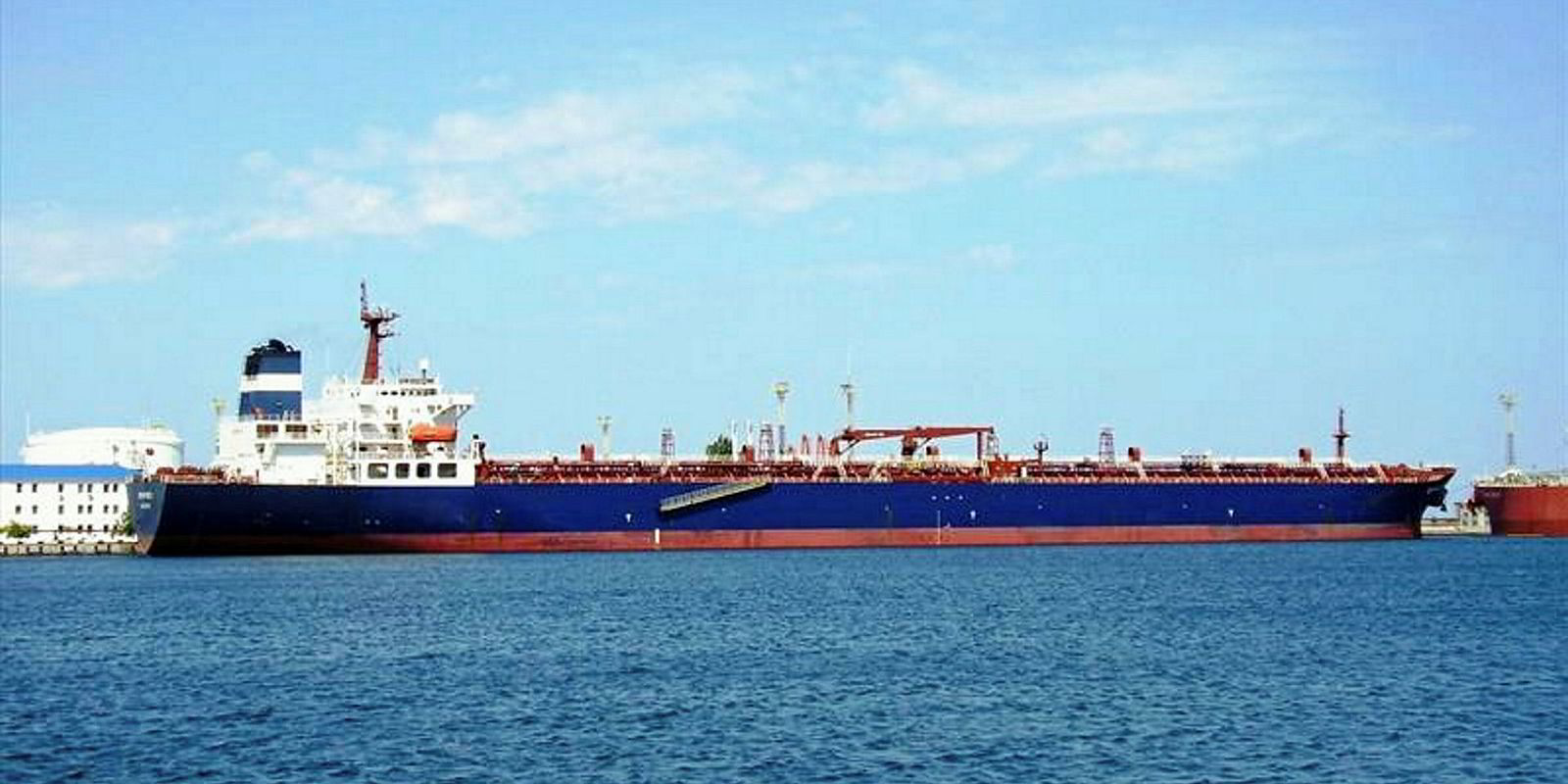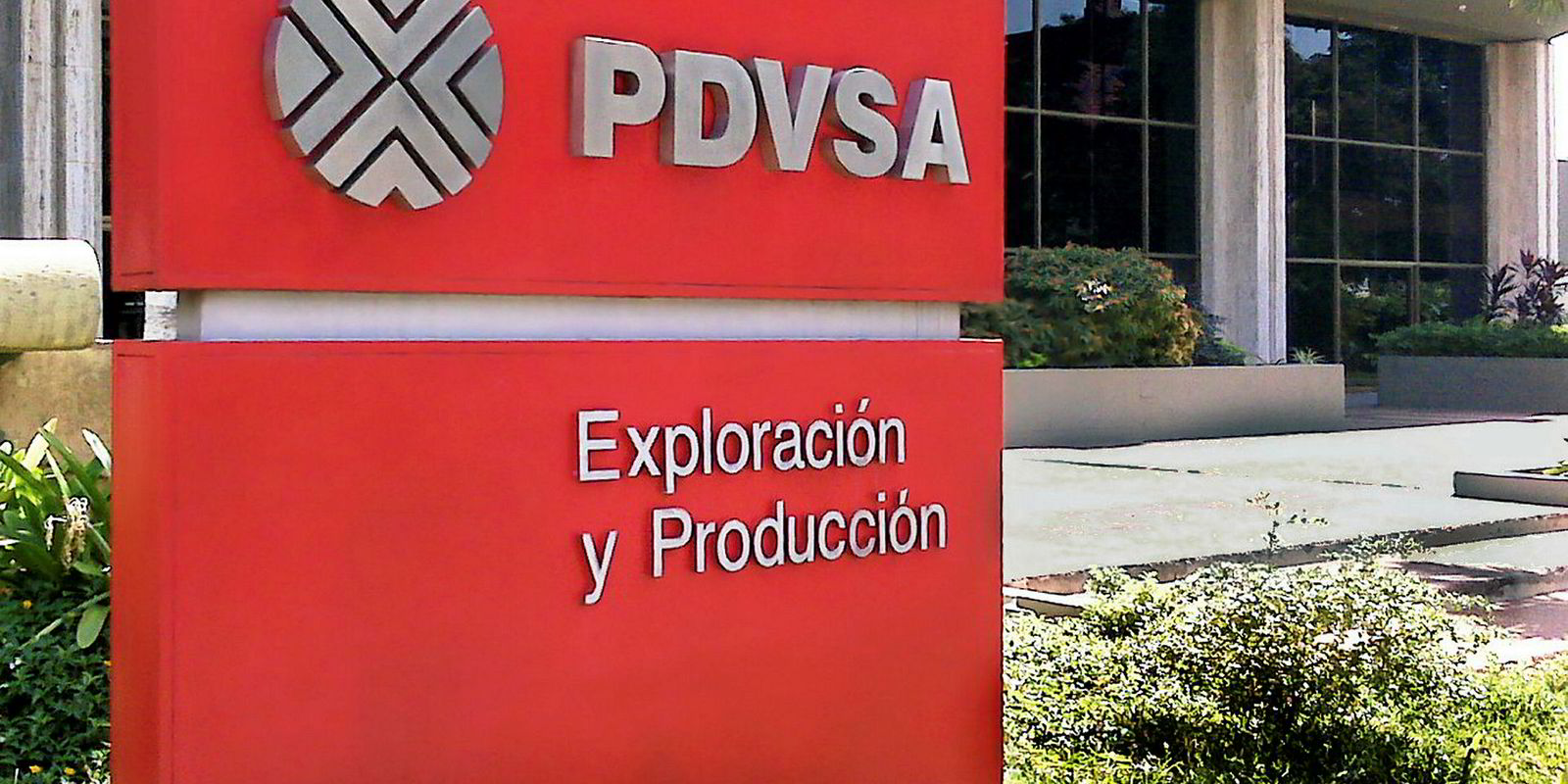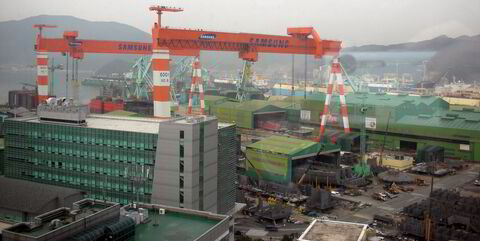Bernhard Schulte Shipmanagement (BSM)’s arrest of a tanker in Singapore last week could be the first of many for Petroleos de Venezuela SA (PDVSA).
The shipmanager filed a SGD 2.6m ($1.92m) claim against the 113,200-dwt Arita (built 2015) for unpaid bunker bills, crew wages, ship chandler services, shiprepair costs and provision of services.
It is unlikely that BSM wanted to arrest a vessel belonging to a long-time client, but with PDVSA firmly on the US sanctions blacklist, the company had little choice if it wanted to get paid.
The relationship between the two companies stretches back almost 25 years.
Until recently, BSM managed 15 of PDVSA’s tankers, including two VLCCs jointly owned by China’s PetroChina.
But with the US taking a tough stance against the state-owned Venezuelan oil company and all in shipping who deal with it, that long-standing relationship has come to an end.
In February, Reuters revealed that BSM was pulling its crews from PDVSA’s tankers due to the inability of the oil company’s shipping subsidiaries to provide funds to cover wages and operating expenses.
The news agency suggested that PDVSA owed BSM, crews and suppliers at least $15m.
In March, BSM announced that sanctions imposed by Washington, as well as the fact that the measures now extend outside the US, had brought it to the point where it had to stop managing PDVSA’s tonnage.
BSM clearly did not want to end up on the US sanctions list, like several other shipping companies that the Americans allege have done illegal business with PDVSA.
PDVSA’s inability to pay its bills was probably also a major factor behind BSM’s decision.
The question now is how the Venezuelan company can continue to operate its fleet of 22 tankers totalling 2.2 million dwt.
In March, PDVSA was forced to declare a “maritime emergency”, claiming that taking back the tanker fleet put it in a difficult position because it does not have enough qualified crews of its own to operate the ships.
Its inability to move cash through the international monetary markets makes it difficult to pay its bills outside Venezuela.
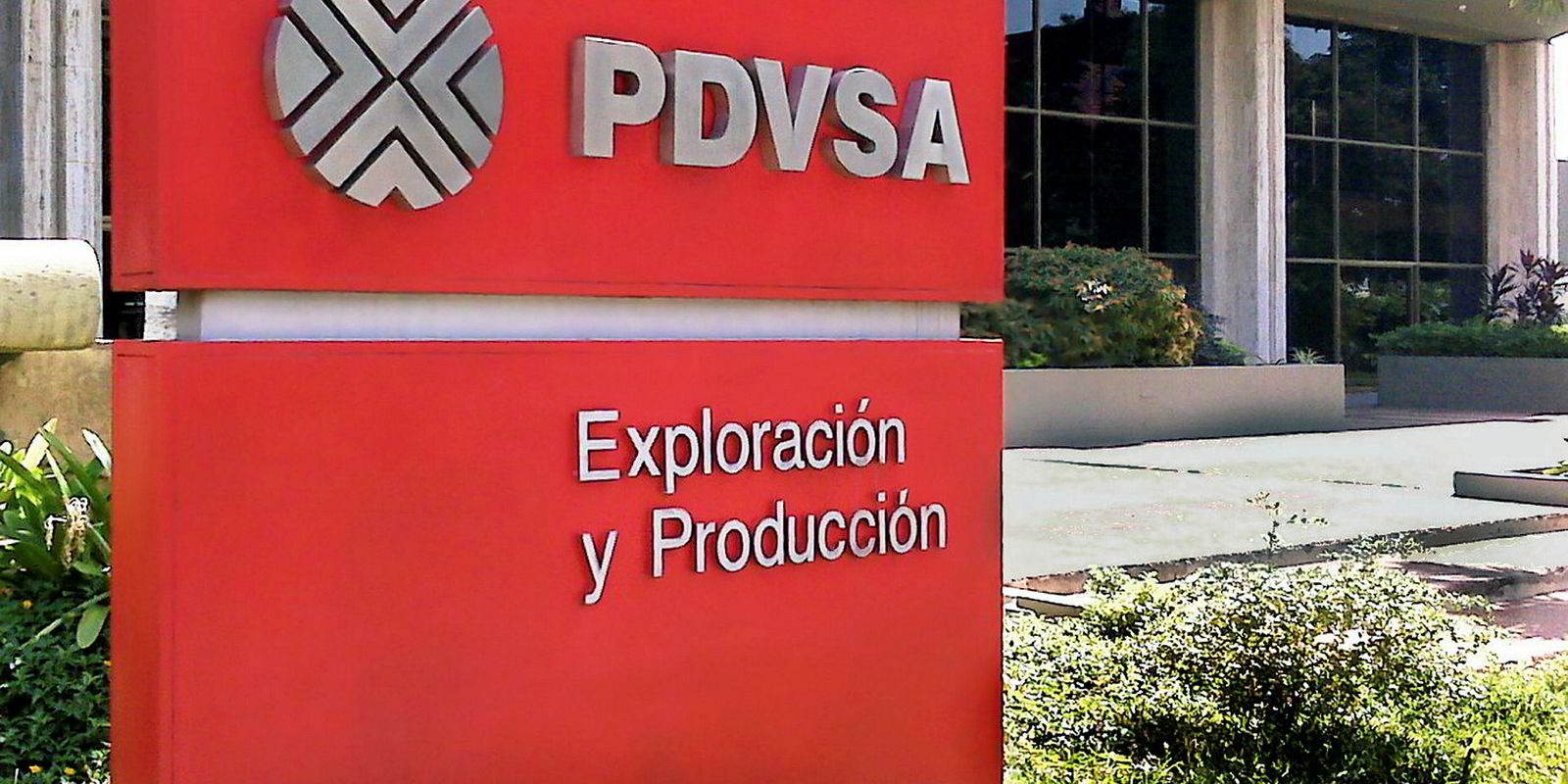
There is also the question of who can charter its tankers without incurring the wrath of the US Treasury Department’s Office of Foreign Asset Control.
There is a chance that Chinese importers would be happy to use PDVSA’s ships.
China continues to buy Venezuelan oil. Beijing has always paid scant regard to American sanctions. It never stopped buying Iranian oil and using Iranian tankers despite even tougher sanctions applied on the Iranian oil and shipping industries.
How the arrested Arita’s future plays out over the next few weeks or months will be watched closely.
Will PDVSA be able to pay BSM through Singapore’s courts and banking system and regain control of its ship?
The Arita is no stranger to sanctions-related trouble.
It was one of three aframaxes that PDVSA ordered in 2006 at Iran Marine Industries Co (Imico), also known as Sadra. The order was largely seen as a politically motivated deal between the then Venezuelan president, Hugo Chavez, and his close counterpart in Tehran, Mahmoud Ahmadinejad.
Shipyard’s inexperience
Construction of the vessel, originally named Sorocaima, took far longer than expected because of Imico’s inexperience in building large ships, along with difficulties sourcing materials due to international sanctions.
It was only physically completed in 2013, when PDVSA refused to take delivery, citing excessive delays.
Laid-up off Bushehr, eastern Iran, for several years, the tanker was eventually sold in November 2017 to Asialink Synergy, a Malaysian-registered company, which put it into service under the management of Hong Kong’s Fareast Shipmanagement.
Less than a year later, it turned up as the Arita under the ownership of Albanave, a wholly owned PDVSA subsidiary.
